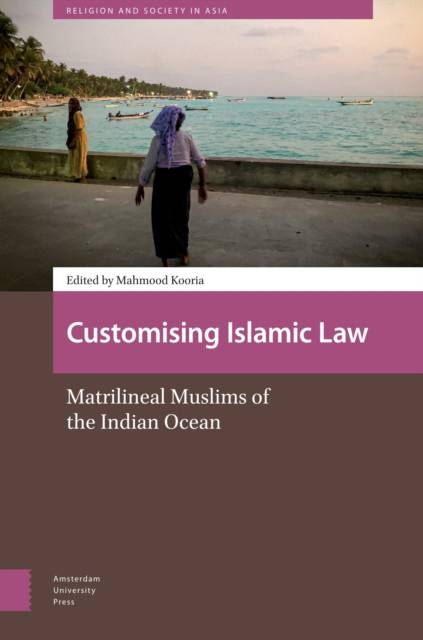
- Afhalen na 1 uur in een winkel met voorraad
- Gratis thuislevering in België vanaf € 30
- Ruim aanbod met 7 miljoen producten
- Afhalen na 1 uur in een winkel met voorraad
- Gratis thuislevering in België vanaf € 30
- Ruim aanbod met 7 miljoen producten
Zoeken
Customizing Islamic Law
Matrilineal Muslims of the Indian Ocean
€ 191,95
+ 383 punten
Omschrijving
Millions of Muslims across the Indian Ocean littoral have historically followed a matrilineal system, where women had better economic and social stability and an upper hand in their personal choices. The system raised serious questions as the Islamic legal tradition evolved in the Middle East, especially when some inheritance customs gave men little to no share in the property. Bringing diverse matrilineal Muslim communities together for the first time, this volume studies their engagements against the patriarchal interpretations of Sharia in comparative and connected perspectives. The comparisons and connections go beyond the Indian Ocean and Islamic world, to the Mediterranean, Sub-Saharan and North African contexts as well as to the Christian, Jewish and Hindu traditions. The contributors explore how and why the followers of the matrilineal praxis defended the system within the legal epistemologies of their religion.
Specificaties
Betrokkenen
- Uitgeverij:
Inhoud
- Aantal bladzijden:
- 386
- Taal:
- Engels
- Reeks:
Eigenschappen
- Productcode (EAN):
- 9789048559596
- Verschijningsdatum:
- 14/10/2025
- Uitvoering:
- Hardcover
- Formaat:
- Genaaid
- Afmetingen:
- 156 mm x 235 mm

Alleen bij Standaard Boekhandel
+ 383 punten op je klantenkaart van Standaard Boekhandel
Beoordelingen
We publiceren alleen reviews die voldoen aan de voorwaarden voor reviews. Bekijk onze voorwaarden voor reviews.







